 |
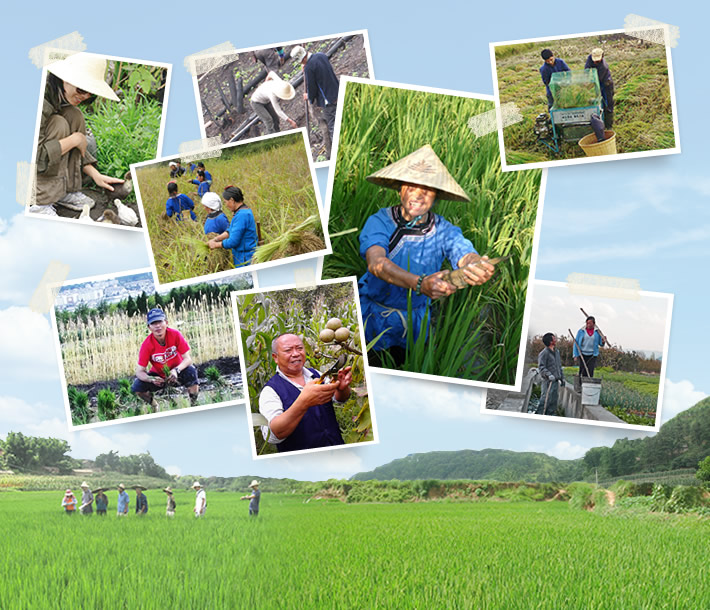
Farming is Fun, Farming is Happiness
Humans rely on agriculture for survival, but world development has progressively stripped away the functions of farming, reducing it to merely a means of production. Villages are fading away as a result of modernisation and urbanisation. The lack of a farming labour force is causing the villages to industrialise their agricultural practices to boost productivity, but in turn destroying the health of the land. Marketisation of agricultural produce is also destablising farmers' livelihood. Farming at the very beginning was a means to nurture lives, yet market-led modern agricultural practices are turning it into one of the biggest threats against the ecosystem and humankind. Since the importance of farming has been largely disregarded, does choosing farming as a career mean setting foot on a narrow and bumpy path?
Agriculture has its own desirable values. It works in accordance with nature. It gains from nature that nurtures all lives. Yet such values have been largely distorted under mainstream development. People cannot see how ecological agriculture, not centred around economic growth and increased productivity, can bring them happiness. This issue of E-News highlights a few examples of ecological agriculture in practice, and explores the goodness and happiness that such farming can bring.
Our reports include accounts of two farmers from very different backgrounds. One of them was once a typical city dweller, working in business. After realising the drawbacks of modern urban living, he determined to leave the city behind to become a farmer, living a life not so rich but embracing happiness, autonomy and freedom. The other one is an older farmer who began farming when he was little. His passion for nature and his respect for all lives made him a person that enjoys his time in the fields. He reciprocates the gifts of the land by ardently promoting ecological agriculture together with his fellow farmers. Another article features the Akha people of the Hani ethnic group in Yunnan, who are still practicing slash-and-burn shifting agriculture in the forest. They also still enjoy their traditional festivals as well as recreations. These people derive harmonious contentment from a way of living that reveres the old traditions and nature, seeing them as interdependent. Even though the current economic development would allow them to give up farming and to live on bought food instead, they choose to carry on with their fallow rotations. Their choice illustrates the appeal of this farming practice which may not be easily fathomed by modern people on the outside.
| 1. |
Building our Future with Freedom and Self-autonomy ─ By Ong Kee Kian (A former urban-dweller who has been farming land in Dali, Yunnan for two years.) |
| 2. |
A Passion For Nature - Where all Creatures Take Joy ─ Text by Li Ziyue (Programme Officer, Yunnan Office, PCD) |
| 3. |
| The Akha People and the Appeal of Shifting Agriculture |
─ |
Jian Kan, Village Head, Red Hair Tree Village, Mengla County of Xishuangbanna, Prefecture in Yunnan Province |
| ─ |
Xian Jia, member of Hani Tribe Institute, Mengla county of Xishuangbanna Prefecture in Yunnan Province |
| ─ |
Shen Dingfang, Programme Officier, Yunnan Office, PCD |
|
|

 |

Background Colour - Insights Brought to Four Youngsters by Farming (Video)
Young people retuning home to their villages has become a phenomenon in China. Even if they do not engage themselves in farming, a lot of them are learning about agriculture and rural development. So what inspirations and visions do these young people gain after they come into contact with farms and farming? With the support of PCD, this video records the choices that four young interns made for their future, and how their labour and experience in ecological agriculture during their internships became the background colour of their lives…… [More]
|
 |
|
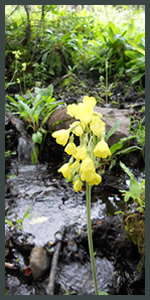 |

The Reflections and Actions of a Tibetan Village Nursing Assistant on Health Issues
In Deqin County of Yunnan Province, where the Zang people live, the tidal waves of development are challenging the traditional Tibetan way of living and their medicine, and in turn, threatening the health of the villagers. The upheavals include drug abuse of Western and Chinese patent medicines, overuse of antibiotics, lavish consumption of outsourced food and the garbage so created, and excessive consumption of alcohol at celebrations such as weddings. Village nursing assistants there, with PCD's support, reflected on the issues and took actions in response…… [More]
|
 |
|
|
| |

An Accord with MiceMice so love paddy rice that they have become rivals for it to humans, and people's primal response is to exterminate them. But this antagonistic response has backfired in contemporary agricultural practices, as the more mice you kill the more they proliferate, and the more damage to the harvest they will bring. Traditional villages, however, have another way of dealing with mice that accommodates both rodent's and people's needs. The way to do it is to make a deal with these rodents…… [More]
|
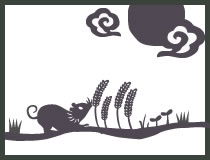 |
|
You may be interested in the following information:
Our Vision and Mission /
History of PCD /
Our Publications /
Primary Approaches – Training of Facilitators /
Where We Work
|
|
|
|

| Though we are based in different regions and have different work approaches, we are all striving to practise sustainable living, and the ripples we create will definitely benefit other partners. Please share your experience and reflections with us and send your stories to enews@pcd.org.hk. The subject of your stories should be related to your programmes. Please provide your name, project background and photographs. Please do not exceed 2,000 words. |

|
|

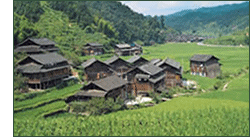 Established in Hong Kong in May 2001, Partnerships for Community Development (PCD) is a community development NGO set up and funded by the Kadoorie Foundation (via a stream of funds allocated by the Hon. Mrs McAulay). The Foundation is a Hong Kong-based trust founded in 1970 by the late Sir Horace Kadoorie, who believed in the principle,"Help people to help themselves".
Established in Hong Kong in May 2001, Partnerships for Community Development (PCD) is a community development NGO set up and funded by the Kadoorie Foundation (via a stream of funds allocated by the Hon. Mrs McAulay). The Foundation is a Hong Kong-based trust founded in 1970 by the late Sir Horace Kadoorie, who believed in the principle,"Help people to help themselves".
PCD believes that everyone, however deprived in material terms, has the right and the ability to lead a dignified and sustainable life in harmony with others, with nature, and with the world at large. Individual well-being is crucial in maintaining a harmonious and sustainable community. PCD believes that the community has to work together to reflect on its relationship with nature and on its cultural traditions.
|

Hong Kong Head Office:
13/F Chi Wo Commercial Building,
20 Saigon Street, Jordan,
Kowloon, Hong Kong
Tel: (852) 2458-0011
Fax: (852) 2430-7099
Email: info@pcd.org.hk
Webpage: www.pcd.org.hk
Programme Offices:
Yunnan Office
Sichuan Programme Office
Guizhou Programme Office
Guangxi Programme Office
|
|
 Subscribe our E-newsletter Subscribe our E-newsletter
|
Unsubscribe
Tip - If you add enews@pcd.org.hk to your email address book, your email system will always recognize our message, ensuring our newsletter won't be classed as spam and you won't miss out. |












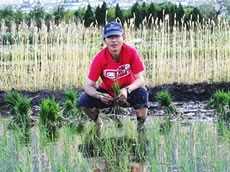

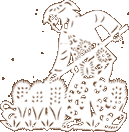


 Established in Hong Kong in May 2001, Partnerships for Community Development (PCD) is a community development NGO set up and funded by the Kadoorie Foundation (via a stream of funds allocated by the Hon. Mrs McAulay). The Foundation is a Hong Kong-based trust founded in 1970 by the late Sir Horace Kadoorie, who believed in the principle,"Help people to help themselves".
Established in Hong Kong in May 2001, Partnerships for Community Development (PCD) is a community development NGO set up and funded by the Kadoorie Foundation (via a stream of funds allocated by the Hon. Mrs McAulay). The Foundation is a Hong Kong-based trust founded in 1970 by the late Sir Horace Kadoorie, who believed in the principle,"Help people to help themselves".
